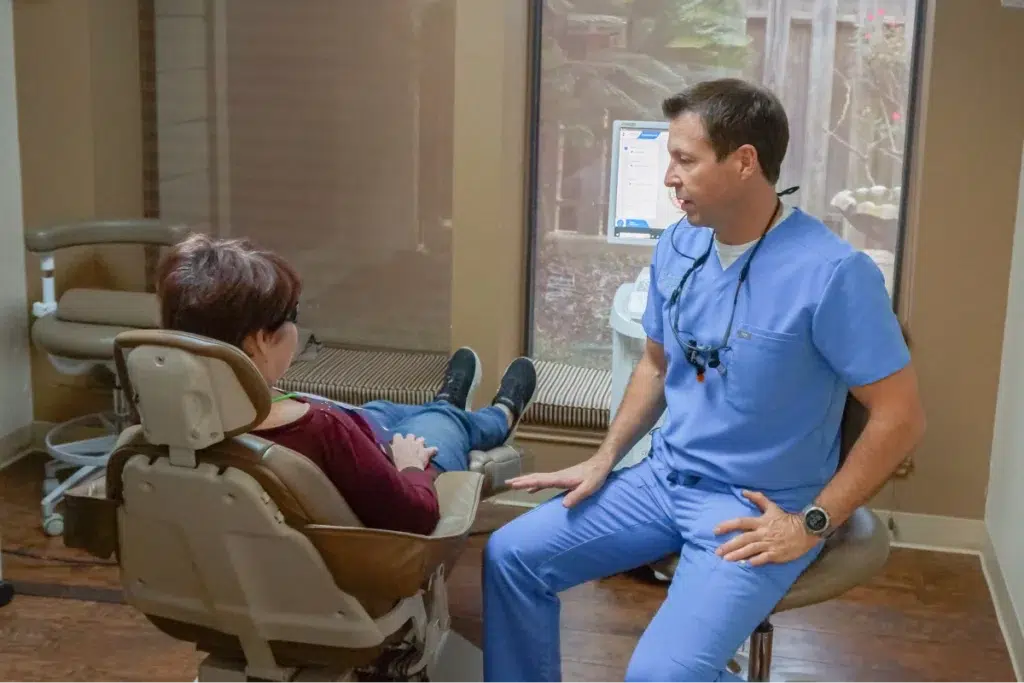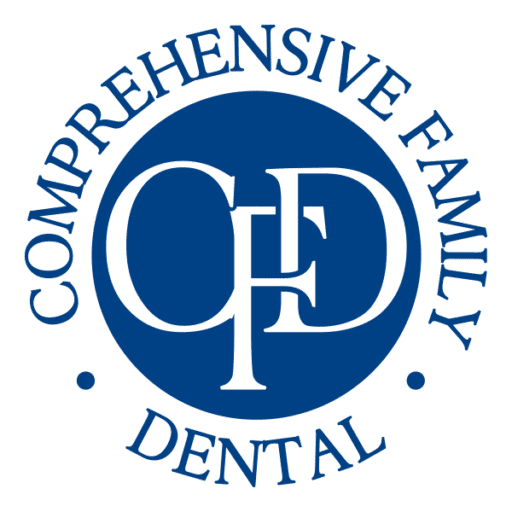If you’ve been experiencing persistent jaw pain, difficulty in opening or closing your mouth, or a clicking sound when you chew, the culprit might be a disorder related to your temporomandibular joint (TMJ). But what does TMJ feel like? In this article, we’ll delve into the signs, symptoms and potential causes of TMJ disorders, hopefully providing you with a clearer understanding of this common but often misunderstood condition.
Shedding Light on TMJ
The temporomandibular joint connects your jawbone to your skull and acts like a sliding hinge. Located on either side of your jaw, this joint is responsible for all the movement and flexibility of your jaw, including eating, talking and yawning.
However, when things go awry with this joint, it can lead to TMJ disorders (also known as temporomandibular disorders or TMD) – a collection of conditions that can cause pain in your jaw joint and the muscles controlling jaw movement.
What Does TMJ Pain Feel Like?
TMJ disorders can manifest in various ways, with symptoms ranging from mild discomfort to severe pain. Below are some of the most common TMJ symptoms that can affect an individual!
The Unmistakable Jaw Pain
A hallmark of TMJ disorders is a localized pain or tenderness in your jaw muscles. This pain can be persistent and may be felt in one or both of the temporomandibular joints, especially for those who struggle with teeth grinding or jaw clenching.

The Tricky Earache
TMJ disorders can also cause aching pain around or inside your ear. This can often lead to misdiagnosis, as people might think they are suffering from an ear infection or other ear-related issues.
The Clicking Sound
One of the most distinctive symptoms of TMJ disorders is a clicking or grating sound when opening the mouth or chewing. However, if there’s no pain or limitation of movement associated with your jaw clicking, you probably don’t need treatment for a TMJ disorder.
The Troublesome Lockjaw
In some cases, TMJ disorders can lead to a condition known as lockjaw, where it’s hard to open or close your mouth completely. This can be particularly distressing, especially when it occurs during eating or speaking.
Facial Pain and TMJ Swelling
Some people with TMJ disorders also experience aching pain in the facial muscles or TMJ swelling. This can be due to inflammation in the jaw joint and the surrounding tissues.
The Sneaky Neck Pain
Can TMJ cause neck pain? Surprisingly, the answer is yes. Since the muscles of the jaw and neck are closely connected, a disorder in the jaw can lead to tension and pain in the neck.

Identifying the Causes of Temporomandibular Joint Disorders
Nailing down the exact cause of TMJ disorders can be tricky. However, there are several factors that can contribute to the development of these conditions. These include: genetic predisposition, arthritis-related damage to the joint’s cartilage, jaw injury or trauma, chronic teeth grinding or clenching (bruxism), and/or certain connective tissue diseases.
It’s worth noting that while many people who grind or clench their teeth may never develop TMJ disorders, it’s still considered a significant risk factor.
Who’s at Risk for TMJ Disorder?
Certain individuals are more likely to develop TMJ disorders than others. Some of the risk factors include: arthritis (including rheumatoid arthritis and osteoarthritis), a history of jaw injury, chronic teeth grinding or clenching, certain connective tissue diseases.

The Consequences of Ignoring TMJ Disorders
Left untreated, TMJ disorders can lead to a host of other health problems. These can range from sleep disruption and nutrition issues (due to difficulty in eating) to increased stress and anxiety levels.
TMJ Treatment
The good news is that TMJ disorders are treatable, and in most cases, the discomfort and pain can be managed with non-surgical treatments or self-care practices. These can include, use of oral bite splints or dental orthotics, cold laser therapy for photo biomodulation to reduce inflammation and speed healing, counseling to understand and manage triggers of pain, certain medications or supplements may be indicated (such as pain relievers, anti-inflammatories, and muscle relaxants), and in more severe cases, surgical interventions may be considered as a last resort.

A Final Word
If you’ve been wondering, “what does TMJ feel like?”, we hope this article has provided some clarity. If you suspect you may have a TMJ disorder, don’t ignore your symptoms. Seek a dentist that is properly trained in TMJ and facial pain therapies and get the help you need. At Comprehensive Family Dental, we’re here to guide you on your journey to better oral health. Don’t live with the pain – contact us today to schedule your first appointment.
Frequently Asked Questions
How do you know if you have TMJ?
You may suspect TMJ if you experience persistent symptoms like jaw pain or tenderness, clicking, popping, or grating sounds in the jaw joint when opening or closing the mouth, and difficulty or discomfort while chewing. Chronic headaches and ear pain are also common indicators of TMJ disorders.
What does a TMJ flare up feel like?
During a temporomandibular disorder flare-up, you might experience increased jaw pain, heightened sensitivity in the jaw joint and muscles, more pronounced difficulty in moving the jaw, and an escalation of associated symptoms such as earaches, headaches, and potentially an inability to fully open or close the mouth.
What are the 4 stages of TMJ?
The progression of TMJ disorders is typically described through the intensity and frequency of symptoms rather than distinct stages. Early signs may include mild discomfort and occasional jaw clicking, progressing to chronic pain, jaw dysfunction, and, in severe cases, permanent joint damage or altered jaw function, necessitating more intensive treatment.
Can TMJ go away on its own?
TMJ symptoms can sometimes improve without treatment, particularly if they’re caused by temporary factors such as stress or minor jaw injuries. However, persistent or severe TMJ symptoms often require intervention, ranging from lifestyle modifications or different therapies including myofunctional or physical therapy to dental appliances or, in rare cases, surgery to alleviate discomfort and restore function.


